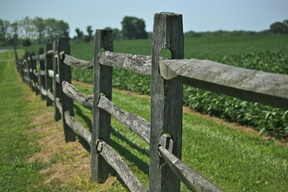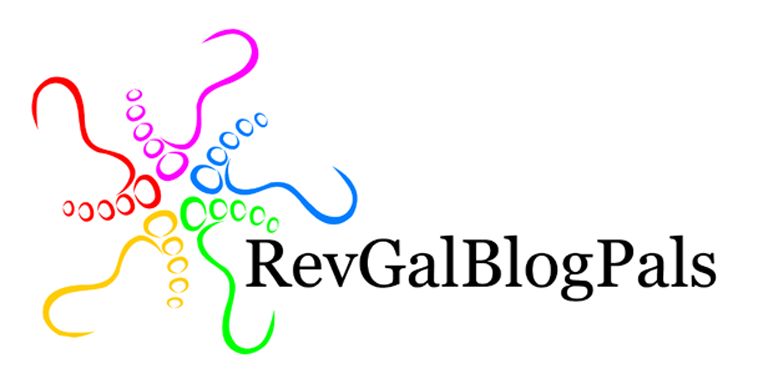 Unclean food and an unclean spirit. Both of these passages seem distant at the first reading to me. And I'll be honest, my context is screaming loudly on the sidelines as I read both passages. We're beginning a ministry for people with special needs. People who are often treated as though they are unclean. Oh sure, we don't use that word. We use words like disruptive, difficult, dangerous. And so I can't help but imagine Jesus in the synagogue when, let's say a person with a developmental disability who is prone to speaking out of turn says to Jesus, "What have you to do with us? I know who you are - but what have you to do with us?" Then Jesus turns to this person and uses the word unclean for that which is tormenting him or her. The question seems reasonable - what had Jesus to do with people suffer with chronic illnesses, or people who live with mental illnesses? What had Jesus to do with so many things we now understand but in the time when these scriptures were penned were lumped into the category of "unclean?" It's this word that causes me to stumble not the actions of Jesus. Whether it be people with leprosy or people with physical disabilities or people who were blind, Jesus sought to share the kingdom primarily with those on the margins of society. And so when Jesus commanded the unclean spirit to come out of him or her, I wonder what happened to this person. What of their condition was unclean - what changed - the physical, the emotional or the spiritual? Was the developmental disability removed? What was the future like for this person? And how did the community adjust in order to assist the change that happened? Isn't that the question for this community in Corinth? One's freedoms have gotten in the way of showing love to another. The community is needing to adjust in order to create comfort for another. One's knowledge of the grace of God in regards to idols has created a stumbling block for another who does not have the same understanding of the grace of God. And so Paul is asking - would you consider not eating at the restaurant down the street that serves meat sacrificed to idols because your brother or sister doesn't feel comfortable doing that at this time? A colleague of mine recently put the question this way, "Are you willing to be 25% uncomfortable in order to make another person comfortable?" That's what this is really about. Am I able to adjust what I want to do or what I find reasonable and admissible in order to accommodate another in the kingdom of God? I can hear Paul's community and even our contemporary context arguing, "If I'm willing to be 25% uncomfortable in order for "them" to feel comfortable why can't "they" be 25% uncomfortable in order to make me feel comfortable too?" The margins of the kingdom are always going to be uncomfortable, aren't they?
0 Comments
Read this week's text, Jonah 3:1-10.  Several weeks ago, my facebook wall erupted with posts about the children who were massacred in a Pakistani school. On one friend's wall, I noticed a comment, "Signs of the end times." I sat stunned, wondering how that could be this person's first response to such a horrific incident. Of course it's not the first time I've heard such reductionist thinking. But I don't travel in Christian circles of this kind much anymore and so I was stunned to silence. Until now. When I read that comment all I heard was a white flag. Surrender to the hate and hurt that can happen in our world. When I read that comment, I heard a shaking of our head in disgust without any chance of making a difference in the world. I heard a person of faith who had given up faith in God's power to prevail in goodness. Now it's possible that I heard it wrong. I concede to often misunderstanding people's comments - we've all been there I'm sure. Social media provides great connection and community and it can also provide grand misunderstanding and hurt feelings. Yet, this is how I heard the comment. And I've been silent until now. Until this week when I hear a similar resignation in Jonah. Although the text we've got is the third chapter, after the first two where Jonah actively says no to God's command. Jonah provides what might be the worst sermon in the scriptures, "40 days and Ninevah will be no more." I like to say 40 days means "as long as it takes or when the time is right." He's walking through the streets seeing the activity that makes for sinfulness. What kind of sinfulness was true of Ninevah? Was it greed? Gluttony? Envy? Sloth perhaps? Or maybe pride? What was this grand sinfulness that has moved God's grace to send Jonah? And what was it in Jonah that had given up on Ninevah? What did Jonah see in them and their lifestyle, their values that caused him to believe they were beyond the grace of God? Too defiant to be saved. It's just how it is over in Ninevah. What can we do about it? Beyond help. It'll be what it'll be. Ninevah is what Ninevah is. I dare say it is we who put up walls or fences, not God. Whatever it is that Jonah saw is not what God saw. God saw a people who would repent, who would turn from wickedness and trust in God. God saw a humble people. God saw people who feared God and wanted righteousness. Now again I could have understood the comment on facebook incorrectly. But here I am this morning thinking about how I see terrible trauma in our world today and wondering how differently God might see those same occurrences. Where I see defiant hate, does God see humble fear? Where I see corrupt exhibition of power, does God see willingness to repent? Where I might be giving up the fight for goodness or kindness or peace, is God waiting for me to go claim goodness, kindness and peace? Ninevah wasn't a lost cause. The rest of the story speaks of repentance on a grand scale - even the animals were to fast! The rest of the story tells about the irresistible grace of God. Nothing is beyond God's reach. No one is beyond God's grace. God changed God's mind with Ninevah. God's grace is the strongest force we know. It is not God's judgment, but God's grace that is the power of our faith. Read this week's text, Psalm 139.  The text begins with an understanding that God has searched us and it ends with a plea for God to search us again. Search us and know us, find our wicked thoughts. See if there is any offensive, hurtful way in us. The psalmist is confident in introspection and confession because the psalmist understands God's vast love for us, God's intricate involvement in who we are. The lectionary suggests we omit the "problematic" section about enemies and hating those who God hates. I can't imagine omitting that section given the talk of enemies in our world these days. And on Martin Luther King weekend, a conversation about enemies seems more than appropriate. Who and what are our enemies? How do we name the enemies in our world? Are they other faiths? Other nations? Other armies? Other ideals? Do we understand enemies over and against the rights we have come to enjoy? Rights like freedom of speech or freedom of religion or privacy? Or do we realize that our enemies are that which keep the Spirit from moving in our lives and our world? The enemy of peace or joy or love or patience or kindness? We have plenty of ways to illustrate the difficulty in defining "the enemy." The incident in Paris, the constant unrest between Israel and Palestine, the rise of fundamentalism and its relationship with the other expressions of its own religion, the relationship between community and law enforcement, the broken working relationship between the executive branch and the legislative branch of government. Do we dare have a conversation about enemies? This conversation that the psalmist was having with God was not about naming the enemy over there, it was about recognizing the enemy over here. Because of God's love for us, the psalmist is more than willing to be vulnerable in front of God. Search me. How I hate those who hate you. But Search me - know me - try me. See my hidden faults. Lead me in the everlasting way. Are we willing to be searched like that? Read this week's text, John 1:1-18.  There aren't many times where we share what God is doing in our lives, or where we share what we are learning or where we share our joys or concerns at any length publicly. Except this Sunday, Epiphany Sunday. Last year, we each received an "epiphany star" - a star cut out of cardstock with a random word written on it. The instructions that go along with the star is fairly simple - live with this word for the year and see what God might teach you through it. John 1 is a poetic telling of God's revelation, God's coming out into the world. "The word was made flesh."" That first word of creation, the creative force of the universe as the Greek's would've understood it, wrapped flesh around itself and publicly entered the world. Light came into the world and "the darkness did not overcome it" or in some translations the "darkness did not comprehend it". Well of course it wasn't understood! It's incredibly difficult to discern what God is doing in our world. We all lack understanding when it comes to parsing God's work and action in the world around us, in our human world! "This light was in the world, and the world came into being through it; yet the world did not know it. It came to what was its own, and its own people did not accept it. (verse 10-11)" Light, epiphany, understanding, wisdom comes to us all the time and so often we do not understand it, accept it, see it, or know it. On this second and final Sunday of Christmastide, we realize that finding the light of the world - in our world - is not as easy as the quaint story of shepherds responding to the call of angels or magi following the star to find a toddler named Jesus. . Finding the light of the world takes practice, and more importantly practicing with others. Finding the light of the world in the world requires focus and reflection, time and imagination. The light has come - now we are to look for its the that which it illuminates and find that on which it casts shadows. |
Search this blog for a specific text or story:
I am grateful for
|

This work is licensed under a Creative Commons Attribution-NonCommercial-ShareAlike 3.0 Unported License.
